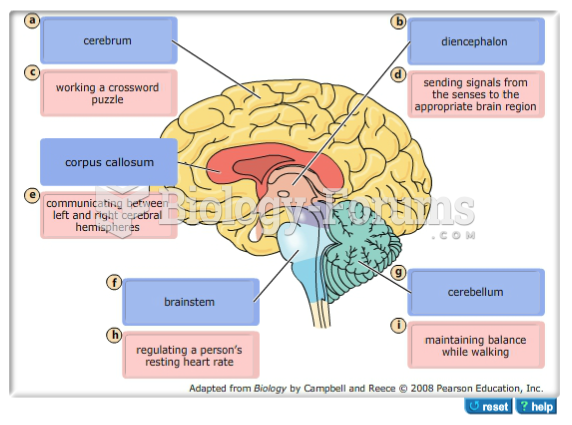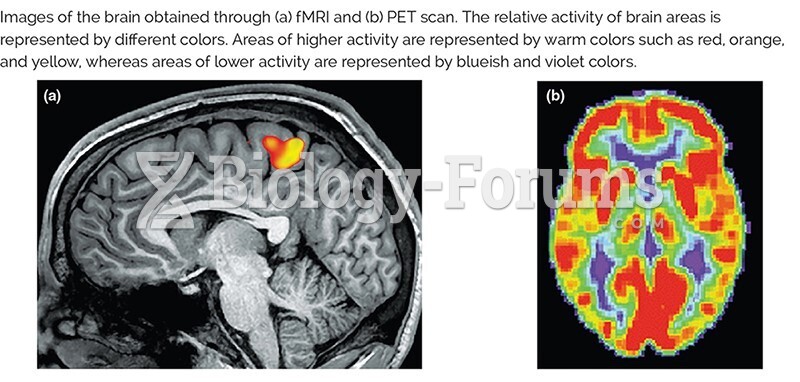|
|
|
Hippocrates noted that blood separates into four differently colored liquids when removed from the body and examined: a pure red liquid mixed with white liquid material with a yellow-colored froth at the top and a black substance that settles underneath; he named these the four humors (for blood, phlegm, yellow bile, and black bile).
The average adult has about 21 square feet of skin.
According to the Migraine Research Foundation, migraines are the third most prevalent illness in the world. Women are most affected (18%), followed by children of both sexes (10%), and men (6%).
Addicts to opiates often avoid treatment because they are afraid of withdrawal. Though unpleasant, with proper management, withdrawal is rarely fatal and passes relatively quickly.
One way to reduce acid reflux is to lose two or three pounds. Most people lose weight in the belly area first when they increase exercise, meaning that heartburn can be reduced quickly by this method.
 Cerebral aneurysm. A cerebral aneurysm is the abnormal dilation of arteries supplying the brain, whi
Cerebral aneurysm. A cerebral aneurysm is the abnormal dilation of arteries supplying the brain, whi
 Dopamine cannot cross the blood–brain barrier. Levodopa, its precursor, can. Once levodopa crosses ...
Dopamine cannot cross the blood–brain barrier. Levodopa, its precursor, can. Once levodopa crosses ...





